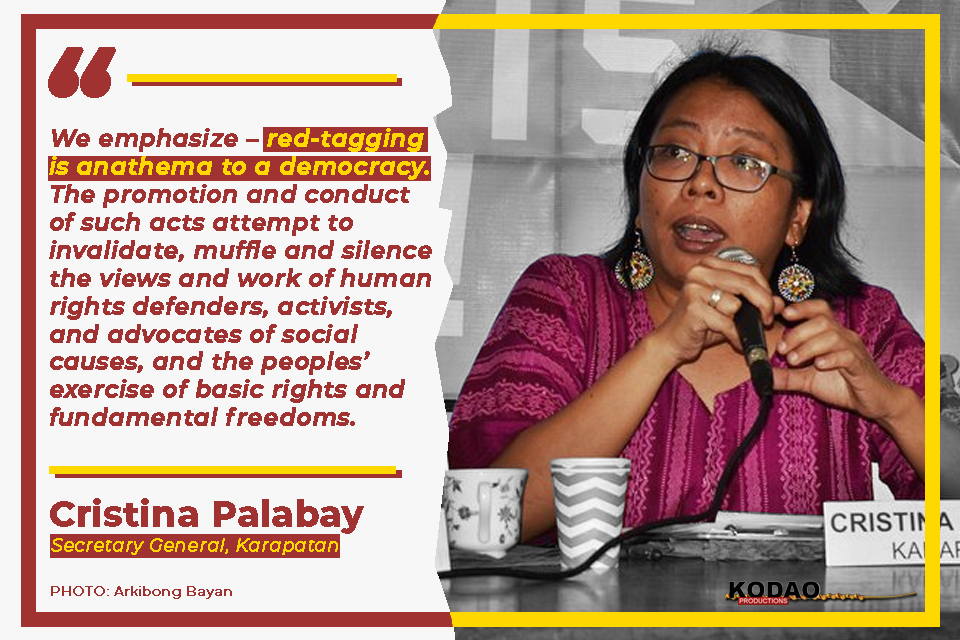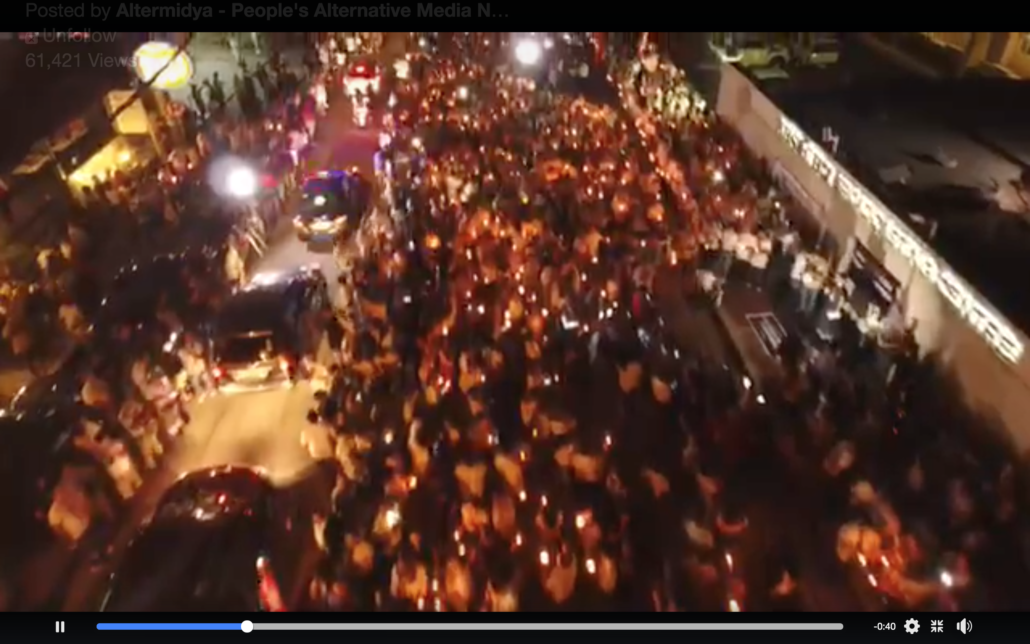Free expression groups and advocates are outraged at village officials and public school teachers in Cabiao, Nueva Ecija who forced a campus journalist into issuing a public apology over his criticism of the Rodrigo Duterte government’s handling of the corona virus disease (Covid-19) pandemic.
Arts and media alliance Let’s Organize for Democracy and Integrity (LODI) said the officials and teachers “deserve nothing but our (LODI) contempt and scorn” for being “bad examples to the youth” when they forced University of the East Dawn editor in chief Joshua Molo into issuing a public apology over his online criticisms of the president and the government.
“In their attempt to silence Joshua, they abused their positions of influence in the community and merely helped cover up the negligent and inept who Joshua wished to expose,” LODI said in a statement.
Molo caught the ire of Barangay San Fernando Sur officials and his former high school teachers when he questioned the Duterte administration’s “inaction” in posts on his Facebook wall. The post has since been taken down.
Molo’s posts piqued three of his former teachers at Cabiao National High School who professed their unquestioning support of the president.
LODI identified Molo’s former teachers as Jun Ainne Francisco, Rochelle Galang, Wilma Manalo, Mel Garcia, Delmar Miranda, Jonifel Ventura, and Rogelio Dela Cruz. The barangay officials are unidentified.
That Molo was eventually “forced” to issue a public apology and take down his posts have earned the ire of free expression and rights groups and advocates.
Violation to free expression
In an alert, the National Union of Journalists of the Philippines (NUJP) said Redwire, an independent publication run by students of UE-Manila first broke the news and quoted friends who were in contact with the campus journalist as saying that the barangay officials threatened to file a libel case against Molo and have him picked up by police if he refused to apologize.
“A video posted on the UE Dawn editor’s social media account Sunday afternoon, April 5, showed him (Molo) making the ‘apology,’ taking his cue from persons outside the frame of the image to begin reading the message he had prepared on his phone, a possible indication he was under duress at the time,” the NUJP said.
Before removing the video, the campus journalist posted a comment saying a former teacher had asked him to take it down, the group added.
LODI said the Molo’s criticisms of the government’s handling of the Covid-19 pandemic are “non-crimes” and that he was right in pointing out the slow delivery of relief items for the citizens placed under quarantine.
Molo’s student publication, the UE Dawn, also condemned “in the strongest possible terms” actions against its editor, adding “preventing someone from expressing his or her opinion on matters such as grievances against the government is an act of oppression.”
Alumni of the College Editors Guild of the Philippines (CEGP), the national alliance of student publications that count the UE Dawn as its member, expressed full support to Molo and condemned “the cowardly acts of harassment against him.”
“The coronavirus pandemic is no excuse to deny anyone, including students, the right to air grievances against government and to hold government accountable for its ineptitude and neglect. The limits on physical movement render free public debate online all the more important. Students have every right to participate in the debate,” the CEGP alumni said.
In a statement, the group asked Molo’s teachers to reconsider their plans to file charges against the campus journalist.
“[They should]…allow Joshua to freely speak his mind, and to instead to help him ventilate the valid complaints he is raising regarding the Duterte administration’s response to the pandemic. Teachers should be the last ones to discourage critical and independent thinking among students. Neither should they encourage blind, unthinking obedience to authority,” the CEGP alumni said.
Human rights group Karapatan for its part said, “We are alarmed on this incident as it is a case of curtailment of the right to free expression. Karapatan would like to remind authorities that the right to free speech is protected by the Philippine Constitution and international human rights instruments. Anyone who wishes to express dismay over government’s actions should never be threatened and penalized.”
Philippines Graphic editor in chief Joel Pablo Salud also publicly criticized Molo’s former teachers, asking “What sort of teachers would take the constitutionally-assured exercise of free speech against this university student editor? These are former teachers in high school; the young man is now in college,” he said.
“Is this the kind of system these teachers are propagating–coercion, intimidation, harassment of those who will exercise their right to free speech? To make matters more disturbing, these teachers were allegedly his former Campus Journalism instructors in high school,” Salud added.
Journalist Inday Espina-Varona said the barangay officials were wrong in coercing submission from Molo on issues way beyond the specific complaint.
“Threatening Molo with arrest on grounds of anti-government sentiment is a violation of his constitutional right to free expression,” Espina-Varona said,
‘Acting like a dictator’
In the same statement, the CEGP also condemned Cebu governor Gwendolyn Garcia’s threat against Today’s Carolinian (TC), student publication of the University of San Carlos in Cebu, that published an editorial critical of the local executive.
“She [Garcia] is not exempt from the requirement of accountability of public officers, and she has no legal authority to limit what can or cannot be said, or what can be asked or commented on,” the article reads.
The editorial entitled “A governor is not above the Constitution” was a criticism of Garcia’s announcement to form a unit to track down people with critical online posts.
Garcia responded with an “invitation” to TC editor in chief Berns Mitra to “beam some light into your clearly uninformed mind that has hastily jumped to an erroneous conclusion.”
The former officers of the CEGP however said Garcia should simply answer the questions and concerns raised by Cebu campus journalists.
“The pandemic is not a license for Garcia to act like a little dictator. She remains a public servant required by law to be accountable at all times to the people,” they said. # (Raymund B. Villanueva)



